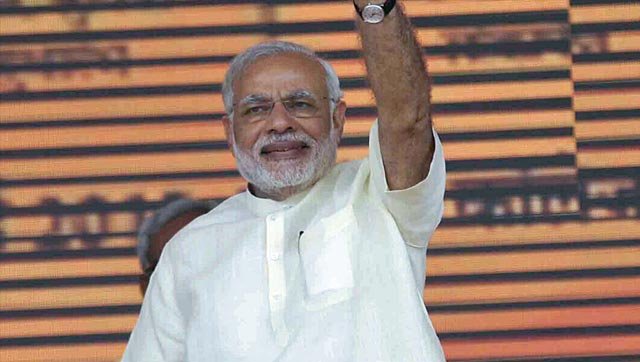
|
Getting your Trinity Audio player ready...
|
Prime Minister Modi spoke about corruption-free India in this year’s Independence Day address. He compared it with termites in our homes that require action at multiple levels. We have to give many injections at many places, he said. He was probably suggesting that besides government, people too have to play a role in uprooting corruption in our country.
His address last year from the ramparts of the Red Fort became famous for the call given for a Clean India – Swachh Bharat. It elicited tremendous response from all sections of the society with politicians, filmstars and corporate hunchos too hitting the streets with brooms in hand, joined by common people in large numbers.
As the Prime Minister pointed out, children of the country picked up the message of Clean India in a big way thus making it a movement of the present as well as the future. From Clean India – Swachh Bharat – to Cleanse India of Corruption, the Modi government’s journey of transforming India into a developed nation is continuing. We need to wait and see whether this endeavour to end corruption in the country too will receive a similar enthusiastic support from the people as did the Clean India campaign.
The Prime Minister himself acknowledges that it would be a difficult challenge. He narrated how pressure was mounted on him for relaxing the auction norms for FM Radio services. His lament was that in the last six decades, corruption has almost become a way of life in our country.
That people are frustrated by this was evident from the rousing response to his suggestion of doing away with the interview business for government jobs at lower levels. As he rightly pointed out, this interview business has literally become a den of corruption. Fighting corruption can’t be the responsibility of the government alone. While governments are expected to eradicate corruption from the top, the society is expected to impart values at the bottom. While we should have a system in place to punish the corrupt, we need also to have systems that create incorruptible people. That is when a comprehensive and decisive victory over corruption is possible.
The Prime Minister’s other focus was on uplifting the poor and downtrodden of our country. His government has taken a number of initiatives like Jan Dhan Yojana, pension and insurance schemes and gas subsidy etc aimed at improving the living conditions of the poor.
The Prime Minister has a unique way of doing these things. It is inclusive. Reference to Team India of 1.2 billion people is not mere lip service. It is his way of achieving things. He is probably the first Prime Minister who has involved people in a big way in achieving the goals of the government. Democracies are described as ‘By the people, for the people and of the people’. PM Modi puts this dictum into practice very ably.
The new initiative of Start Up India and Stand Up India too will follow the same pattern. It is aimed at encouraging enterprenuership of the young. India is endowed with a large pool of talented youngmen and women. There is a need for encouraging them to take up enterprenureal activity. The Prime Minister has announced that more than one lakh branches of various banks would act as catalysts to promote enterpreneurship among the youth, especially SCs, STs and women. He exhorted bank officials to extend similar support to this initiative as they did for Jan Dhan Yojana.
The Prime Minister is surely following a well-defined course. He invoked Gandhiji’s name in a different context. But Gandhiji had actually set out an agenda for independent India on the last day of his life by way of a draft resolution.
In his last public document, drafted on 29 January 1948 and handed over to Congress officials on 30 January hours before his unfortunate and untimely death, Gandhiji had said: “India has still to attain social, moral and economic independence in terms of its seven hundred thousand villages as distinguished from its cities and towns”.
Thus, while we became “politically free” on Independence Day in 1947, securing economic, social and moral independence was still to be achieved, according to him. That in his view was the real meaning of independence. In his famous poem, “Where the mind is without fear”, Rabindranath Tagore too calls essentially for social and moral reform of the country. Tagore described freedom as a heaven where there is no fear; where knowledge and reason drive the people; where narrow domestic walls don’t divide them and where creative thinking and action, not dead habit lead the people.
We are going to celebrate the 150th birth anniversary of Gandhiji in 2019 followed by the 75th anniversary of our independence in 2022.
The goal set by Gandhiji for social, moral and economic upliftment of our nation should be the driving force for all of us in the next few years. From the Red Fort’s ramparts, the Prime Minister has appealed to the countrymen to share this eloquent vision of our forefathers and turn it into a reality.
(The author is national general secretary of the BJP)



